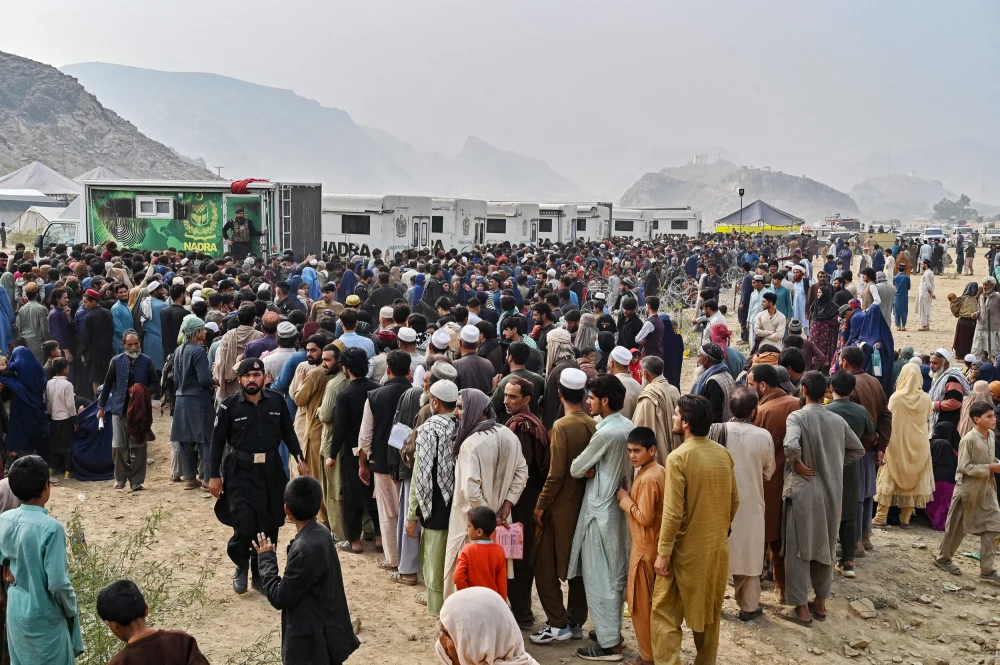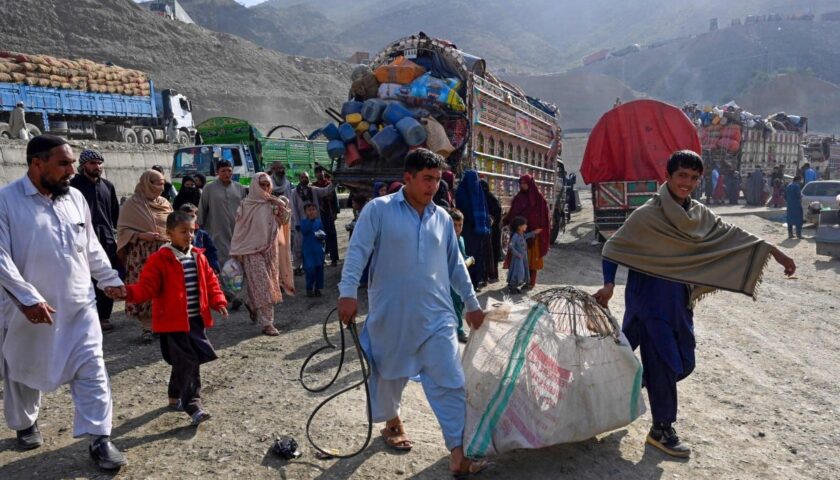
The situation surrounding the deportation of Afghan refugees from Pakistan is complex and multifaceted. Here’s a detailed analysis of the issue and potential solutions.
Pakistan has announced plans to deport foreign nationals without valid visas or those who have overstayed their visa for more than a year, primarily affecting Afghans. The government cites increasing crime and violence, including suicide attacks, as the motivation for the mass deportations. However, outside observers note that there may be political reasons for the deportations, such as pressuring the Islamic Emirate of Afghanistan into a more cooperative foreign policy.Pakistan and Afghanistan can engage in diplomatic talks to address concerns about security, immigration, and cooperation. This could involve negotiating agreements on border control, trade, and mutual cooperation.Pakistan can offer Afghans a chance to regularize their stay by obtaining valid visas or residence permits. This would help Afghans who have been living in Pakistan for years to continue their lives without fear of deportation.Pakistan and the international community can work together to provide humanitarian assistance to Afghan refugees, including shelter, food, and medical care.The international community, including the United Nations and Western countries, can provide support and resources to help Pakistan manage the refugee crisis and promote a peaceful resolution. Mass deportations can lead to a humanitarian crisis, with potential consequences including. Afghans who have been living in Pakistan for years may lose their jobs, homes, and livelihoods.Deportations can lead to the separation of families, causing emotional trauma and hardship.Deported Afghans may face poverty and economic hardship in Afghanistan.
Deportations can also have economic consequences for both Pakistan and Afghanistan. Pakistan may lose skilled workers, including business owners, entrepreneurs, and professionals.Deportations can disrupt trade and commerce between Pakistan and Afghanistan.Mass deportations can also have social consequences.Deportations can lead to increased tensions between Pakistan and Afghanistan.Afghans who remain in Pakistan may face stigma and marginalization.A solid solution to this issue would involve a combination of diplomatic negotiations, visa regularization, humanitarian assistance, and international cooperation. The Pakistani government should consider the humanitarian and economic implications of mass deportations and work towards finding a solution that balances security concerns with the needs of Afghan refugees.

Gradual and Voluntary Repatriation Implement a gradual and voluntary repatriation process for Afghan refugees, ensuring their safety and dignity.
Protection of Refugees
Ensure the protection of Afghan refugees from arbitrary arrest, detention, and deportation.
International Support
Seek international support and resources to manage the refugee crisis and promote a peaceful resolution.
Diplomatic Engagement
Engage in diplomatic talks with Afghanistan and the international community to address concerns about security, immigration, and cooperation.




